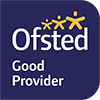Pupil Premium
The pupil premium is additional funding given to publicly funded schools in England to raise the attainment of disadvantaged pupils and close the gap between them and their peers.
Pupil premium funding is available to both mainstream and non-mainstream schools, such as special schools and pupil referral units.
Pupil premium funding is reviewed annually in September.
Click on the links below to view our Pupil Premium strategy documents and reviews:

“Teachers appreciate the support they receive from subject leaders to help them improve their teaching.”

“There are respectful relationships between adults and pupils.”

“The residential visit to Robinwood encourages pupils to experience new challenges and work collaboratively with their friends.”

“Pupils say that behaviour is good.”

“Children settle into school quickly.”

“Pupils enjoy learning about a wide range of subjects.”

“Leaders have considered what pupils might need to know to broaden their understanding of the world around them.”

“The school enjoyed recent success when the computing club won a local area competition using their coding skills.”

“There are a wide range of school clubs.”

“Senior leaders, alongside the multi-academy trust, have provided subject leaders with training.”

“Pupils recommend the school to their friends.”

“The school is calm and orderly. Pupils walk around school sensibly and are courteous to one another.”

” Some teachers check carefully to find out which pupils are stuck and which pupils need further challenge during lessons.”

“Staff are well trained in teaching children to read.”

“Leaders have thought carefully about the curriculum plans they have introduced.”

“There is a strong team culture within the school.”

“Curriculum plans are well sequenced.”

“Pupils access a range of visits and activities beyond their own experiences.”

“Pupils support each other well when they are completing their work.”

“Teachers who are new to the school welcome the support they receive.”

“Staff work closely with professionals from external agencies to provide support for pupils with SEND.”

“Adults help pupils who fall behind.”

“Pupils say they feel safe in school.”

“Teachers check what pupils have learned and remembered each term.”

“The ‘Mountbatten 50’ challenges pupils to complete a range of interesting activities
before they leave the school.”

“Pupils enjoy attending school.”

“Staff encourage
pupils to be independent from an early age.”

“There is a clear focus on the teaching of early mathematics and reading.”

“Subject leaders are knowledgeable about their subjects.”

“Leaders and teachers make regular checks to see how well pupils with special educational needs and/or disabilities (SEND) are doing.”

“Pupils listen carefully to what adults say. They join in class discussions enthusiastically.”

“Leaders work well
with members of the multi-academy trust to support staff.”

“Children start to learn to read as soon as they enter the school.”

“Pupils learn how to keep safe when using the internet.”

“Staff welcome the highquality training they receive. They feel proud to work in the school.”

“The early years environment is inviting and well organised.”



